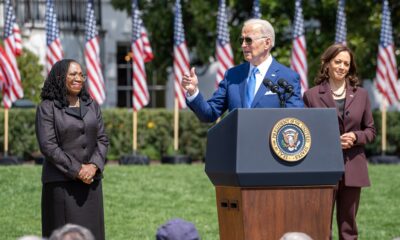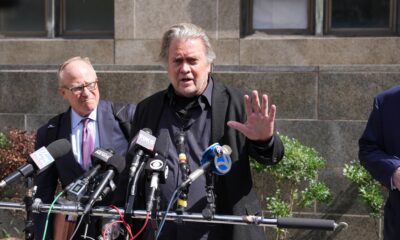Unmasking The Never-Trump Charity Cash Cycle

Defending Democracy Together (DDT), a notorious anti-Trump organization, finds itself embroiled in ethical and financial controversy. New reports show that FEC filings indicate the organization funneled over $10.6 million into Longwell Partners, a company owned by DDT’s executive director, Sarah Longwell. The obvious conflict of interest raises serious questions, especially since Longwell owned at least 35% of DDT at all relevant times, according to publicly filed tax records.
The payments made to Longwell Partners accounted for a substantial portion of DDT’s revenue, jumping from 12.7% in 2020 to 32.1% in 2022. DDT, along with its affiliate Republican Accountability PAC, has established a pattern that benefits its executives personally under the guise of political activism.
Moreover, DDT and similar entities receive significant financing from leftist and globalist donors. For instance, the Sixteen Thirty Fund — directly controlled by Democrat Party interests — contributed over $10 million to DDT from 2020 to 2022.
This scenario isn’t isolated to DDT. The Lincoln Project, another anti-Trump entity, has also channeled a substantial amount of its finances through firms owned by its founders. This mirrors the pattern seen in DDT, where personal gain appears to be the payoff for socialist and neoconservative political posturing.
Critics argue that this grift undermines genuine political discourse by redirecting the focus from honest debate to personal enrichment. The irony runs deep with the anti-Trump and establishment political funding fronts. The groups that most loudly claim they are “defending democracy” are instead working hard to subvert the popular will of voters while ignoring foundational ethical standards.
This case presents a textbook example of the ethical challenges in political advocacy groups. The lack of transparency and potential conflicts of interest undermine public trust and detract from the substantive issues at stake. For a movement or organization to maintain credibility, clear lines must be drawn between personal financial interests and the group’s mission.
The rise of such controversies within the anti-Trump sphere might inadvertently boost Trump’s standing among his supporters and undecided voters. It feeds into the narrative of a ‘swamp’ that exists beyond the confines of any one party or ideology, reinforcing Trump’s claims of being an outsider combating entrenched political interests.
This scenario presents a crossroads for the Republican Party. It must decide whether to allow these revelations to redefine its course or take definitive steps to distance itself from practices that could tarnish its reputation. As the 2024 election looms, the choices made now could have long-lasting implications for the party’s identity and integrity.
























